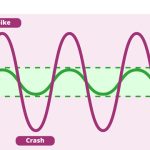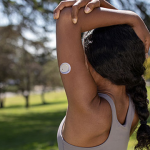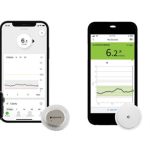
This section is dedicated to providing you with everything you need to know about diabetes monitoring and control. Monitoring is a vital part of diabetes management, and is the key to delaying or preventing diabetes complications. Of course, monitoring of your blood glucose levels to ensure you are reaching your targets is important, but so are regular monitoring tests like A1C, blood pressure, eye and foot exams.
Monitoring articles
 Blood glucose monitoring: to check and when to check? That is the question!Self-monitoring of blood glucose (SMBG) has been around for over 50 years. In fact, I think sometimes it may be taken for granted.
Blood glucose monitoring: to check and when to check? That is the question!Self-monitoring of blood glucose (SMBG) has been around for over 50 years. In fact, I think sometimes it may be taken for granted. Overcoming barriers to blood glucose monitoringAs someone living closely with diabetes, you have heard the diabetes healthcare team talk about the importance of blood glucose monitoring.
Overcoming barriers to blood glucose monitoringAs someone living closely with diabetes, you have heard the diabetes healthcare team talk about the importance of blood glucose monitoring. How to check blood glucose levelsIf you have diabetes, check blood glucose at regular intervals. It is one of the best things you can do to manage your diabetes
How to check blood glucose levelsIf you have diabetes, check blood glucose at regular intervals. It is one of the best things you can do to manage your diabetes Blood glucose level fluctuations: not all blood glucose levels need to be perfectDespite all the advances in recent years, the fact remains that diabetes management is not a perfect science. Your may follow the diabetes healthcare recommendations to the letter and then suddenly,out of the blue, large blood glucose level fluctuations occur.
Blood glucose level fluctuations: not all blood glucose levels need to be perfectDespite all the advances in recent years, the fact remains that diabetes management is not a perfect science. Your may follow the diabetes healthcare recommendations to the letter and then suddenly,out of the blue, large blood glucose level fluctuations occur. Glucose sensors galore! How do you make a choice?For extra insights around these decisions, glucose sensors can be incredibly helpful. In addition to seeing your current glucose number, a glucose sensor will show you a graph of where your glucose has been, and trend arrows to give you an idea where your glucose is headed.
Glucose sensors galore! How do you make a choice?For extra insights around these decisions, glucose sensors can be incredibly helpful. In addition to seeing your current glucose number, a glucose sensor will show you a graph of where your glucose has been, and trend arrows to give you an idea where your glucose is headed. Glucose Sensors Comparison ChartThis chart provides a comprehensive comparison of three leading glucose sensors: the Dexcom G7, Freestyle Libre 2, and the Medtronic Guardian Connect or Guardian 3 (compatible with 770G/780G insulin pumps). It covers key aspects like sensor features, insertion parts, wearable pieces, sensor sites, warm-up time, wear time, display devices, and additional functionalities.
Glucose Sensors Comparison ChartThis chart provides a comprehensive comparison of three leading glucose sensors: the Dexcom G7, Freestyle Libre 2, and the Medtronic Guardian Connect or Guardian 3 (compatible with 770G/780G insulin pumps). It covers key aspects like sensor features, insertion parts, wearable pieces, sensor sites, warm-up time, wear time, display devices, and additional functionalities. Recommended diabetes monitoring testsAs someone living with diabetes, we invariably end up needing to schedule a host of diabetes monitoring tests.
Recommended diabetes monitoring testsAs someone living with diabetes, we invariably end up needing to schedule a host of diabetes monitoring tests. What are the 5 main factors that affect blood glucose levels?For people living with type 1 or type 2 diabetes, one of the major goals is targeting near-normal blood glucose levels over the long-term. Studies have shown that prolonged elevated blood sugar is the major risk factor for developing complications of diabetes
What are the 5 main factors that affect blood glucose levels?For people living with type 1 or type 2 diabetes, one of the major goals is targeting near-normal blood glucose levels over the long-term. Studies have shown that prolonged elevated blood sugar is the major risk factor for developing complications of diabetes Time in range: What is it? How do we measure it? Why is it important?If you use continuous glucose monitoring, it’s important to know your time in range, which helps you better understand your glucose patterns. Read this expert blog to learn more about time in range.
Time in range: What is it? How do we measure it? Why is it important?If you use continuous glucose monitoring, it’s important to know your time in range, which helps you better understand your glucose patterns. Read this expert blog to learn more about time in range. Target blood glucose levelsBlood glucose levels change across the course of a day, and can vary depending on the foods you eat and physical activity levels.
Target blood glucose levelsBlood glucose levels change across the course of a day, and can vary depending on the foods you eat and physical activity levels.

